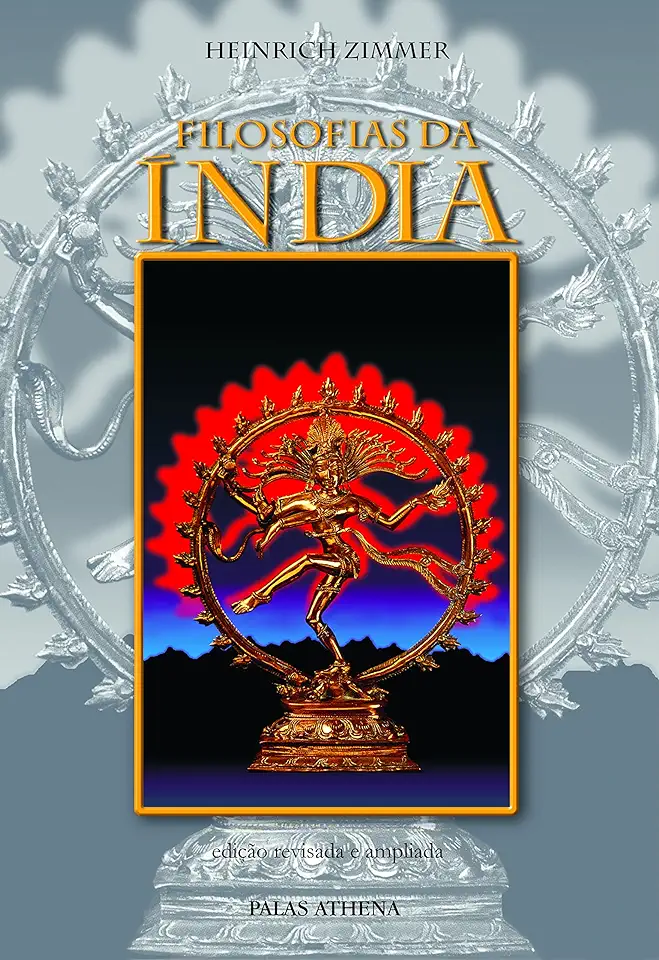
Philosophies of India - Heinrich Zimmer
Philosophies of India: An Introduction to the Major Philosophical Systems of the Subcontinent
Heinrich Zimmer's Philosophies of India is a comprehensive and erudite exploration of the major philosophical systems of the Indian subcontinent. Zimmer, a renowned Indologist and scholar of comparative religion, provides a lucid and engaging introduction to the complex and diverse philosophical traditions of India, making this book an essential resource for anyone interested in Eastern thought.
A Journey into the Heart of Indian Philosophy
Zimmer's book takes readers on a journey through the vast landscape of Indian philosophy, encompassing the major schools of thought that have shaped the intellectual and spiritual traditions of the subcontinent for centuries. From the ancient Vedas to the modern era, Zimmer explores the key concepts, doctrines, and practices of Hinduism, Buddhism, Jainism, and other philosophical systems.
Hinduism: The Eternal Dharma
Zimmer begins his exploration with Hinduism, the oldest and most influential philosophical tradition in India. He delves into the Vedas, the Upanishads, and the Bhagavad Gita, revealing the profound insights and spiritual teachings that form the foundation of Hindu thought. Zimmer also examines the diverse forms of Hindu worship, rituals, and festivals, providing a glimpse into the vibrant religious life of India.
Buddhism: The Path to Enlightenment
Zimmer then turns to Buddhism, another major philosophical system that originated in India. He traces the life and teachings of the Buddha, exploring the Four Noble Truths, the Noble Eightfold Path, and the concept of nirvana. Zimmer also discusses the various schools of Buddhism, including Theravada, Mahayana, and Vajrayana, highlighting their unique contributions to Buddhist thought and practice.
Jainism: The Path of Non-Violence
Zimmer also examines Jainism, a lesser-known but significant philosophical tradition in India. He explores the fundamental principles of Jainism, such as ahimsa (non-violence), anekantavada (multiple perspectives), and aparigraha (non-attachment), and discusses the ethical and spiritual practices that form the core of Jain religious life.
Other Philosophical Systems
In addition to these major philosophical systems, Zimmer also explores other influential schools of thought in India, including Sikhism, Kashmir Shaivism, and the philosophy of the Tantras. He provides a concise overview of each tradition, highlighting its key teachings and practices, and demonstrating the rich diversity of philosophical thought in India.
A Comparative Perspective
One of the strengths of Zimmer's book is his comparative approach. He draws parallels between different philosophical systems, highlighting their similarities and differences, and demonstrating the interconnectedness of Indian thought. This comparative perspective allows readers to gain a deeper understanding of the underlying principles and themes that unify the diverse philosophical traditions of India.
A Timeless Classic
First published in 1951, Philosophies of India has stood the test of time as a classic work of scholarship and a valuable resource for students, scholars, and anyone interested in Indian philosophy. Zimmer's profound knowledge, lucid writing style, and deep appreciation for Indian thought make this book an essential addition to any library on Eastern philosophy.
Conclusion
Philosophies of India is a comprehensive and engaging introduction to the major philosophical systems of the Indian subcontinent. Heinrich Zimmer's masterful exploration of Hinduism, Buddhism, Jainism, and other philosophical traditions provides readers with a deep understanding of the intellectual and spiritual heritage of India. With its comparative approach and timeless insights, this book is a must-read for anyone seeking to explore the depths of Eastern thought.